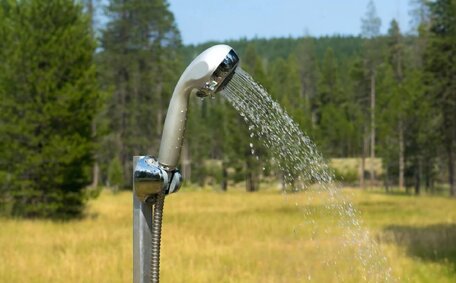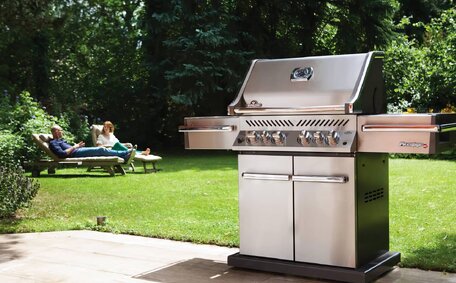Introduction to septic tank problems
For homes off the municipal sewer grid, septic tanks are essential for waste management. Regular maintenance prevents wastewater overflows and septic tank backups, ensuring safe disposal. Neglecting your tank can lead to serious issues like backups and overflows, potentially causing septic tank failure and total system collapse.
At Peakhurst Plumbing, we understand the critical need to keep septic systems functioning optimally. As licenced specialists equipped to handle all septic-related problems, we emphasise early detection and timely repairs to avoid costly damages. Monitoring key septic tank indicators helps homeowners prevent complex repairs.
This article will guide you to keep an eye out for essential details indicating when your septic tank requires urgent attention. Keep a keen eye out for these warning signs and contact Peakhurst Plumbing right away if you suspect a septic system issue. Early detection of septic tank issues is crucial to maintain both system health and environmental safety.
Understanding how a septic system works
A septic system consists of the tank, connecting pipes, and the drain field. The septic tank is an underground container, usually made of concrete or plastic, that holds household wastewater and sewage.
These pipes transport the effluent into the drain field or leach field buryied underground. The leach field, where effluent is distributed for absorption, showcases how the septic tank can efficiently release treated water.
Microbes in the soil of the leach field decompose organic waste and pollutants, allowing treated water to join the groundwater flow.
The equilibrium of your septic system depends on the treated water being absorbed by the soil, a balance that monitoring tools can help maintain. Disruptions can overload and potentially damage parts or the entirety of the septic system.
Common signs your septic tank needs attention
Several signs indicate an immediate need for septic tank maintenance or repairs:
- Sewage backing up - If you notice gurgling sounds and water backing up into home sinks, tubs or toilets, it likely suggests a blockage or failure in your septic system.
- Slow drains - Sluggish sink and toilet drains taking longer to empty could imply your septic tank needs pumped to remove waste.
- Plumbing backups - Sewage backups into the lowest drains and toilets in your home points to a septic system overload.
- Sewage odours indoors or outdoors - A smell could also signal a need for inspection; unpleasant rotten egg odours from drains or around your septic tank, yard, and your drainfield indicate gas buildup from excess waste accumulation.
- Water pooling and lush spots - Standing water or brighter green grass over the drain field could mean it’s unable to absorb liquid from a saturated septic tank.
- Low water pressure - Decreased water pressure from faucets and fixtures may be from solids filling up your septic tank.
Recognising signs of a full septic tank in your household plumbing is essential to prevent major system failures. If you recognise the warning signs and require our septic services, call Peakhurst Plumbing right away for a system assessment.
Pooling water or overly damp areas near the septic drainage
Unexpected water pooling or excessively damp patches outside your property near your septic tank drain field could be a clear indication of septic system failure.
Your sewer line and drain field are crucial for wastewater absorption into the soil. When it becomes saturated or clogged, wastewater may start pooling on the surface. Typically, this occurs due to one of the following reasons:
- Overflowing septic tank – When a septic tank needs emptied on a routine basis, failure to do so can result in wastewater surfacing, especially during heavy rainfall.
- Drain field issues – Compacted soil, clogged pipes, or damage to the drain field can prevent wastewater from seeping into the ground properly and result in pooling water.
Water pooling or consistent dampness near your drainage system signifies an urgent need for our professional services. Whether it concerns septic pumping or drain field refurbishing, immediate interventions that appear live site guidelines can circumvent extensive damage while preserving environmental and domestic hygiene.
Our expert technicians will investigate, identify the root cause, and provide tailored solutions within the parameters of your septic system.
Slow draining sinks, showers or toilets in the home
Slow drainage in home fixtures often signals septic tank concerns, warranting further inspection. A fully or partly blocked septic tank or drain field will slow the outward flow of wastewater. If your sinks and showers, or toilets seem sluggish despite attempts at plunging and snaking, it likely means excessive solids have accumulated inside your septic tank.
As sludge, scum and solids build up over time, less space remains for liquid waste to flow out into the drain field for processing. Clogged outlet filters or piping may also slow drainage. Eventually, drains can even back up into the lowest fixtures if wastewater has nowhere to go.
Call Peakhurst Plumbing if slow drainage persists so we can perform tank cleaning, pumping your septic tank or clear any obstructions. Allowing solids to overload your system can lead to sewage backups, plumbing damage and costly repairs.
Raw sewage backing up into sinks, showers or toilets
One of the clearest signs that your septic system requires urgent attention is raw sewage backing up into household fixtures like sinks, showers and toilets. This indicates that wastewater is unable to exit your septic tank, likely because it’s reached full capacity.
As sludge accumulates and takes up more space over time, less room remains for liquid waste drainage. Eventually, with nowhere to flow, sewage backs up into the home’s lowest sinks and drains toilets.
Raw sewage backup could also pose serious health hazards due to bacteria, viruses and parasites. This septic tank issue could end up flooding your home and causing extensive damage if left unchecked. Call Peakhurst Plumbing immediately in case sewage is coming your way, to prevent contamination and properly diagnose your septic tank issues.
Lush, overly green grass or vegetation near the drain field
Lush, vibrant green grass or dense plant growth over and around your septic system’s drain field could indicate issues with wastewater drainage. As nutrient-rich effluent exits the septic tank into the leach field, it can act as a fertiliser, causing excessive vegetation growth.
When such saturation occurs, it’s often a sign that the effluent is watering your lawn too much, indicating wastewater is saturating the soil and unable to properly filter away. Common causes include a clogged or damaged drain field, high water table, overly compact soil, root intrusion or a full septic tank bottlenecking the system.
Excess moisture prevents oxygen from reaching plant roots and beneficial microbes that would normally break down contaminants. This can lead to environmental contamination and backyard hazards from standing effluent.
Inspect your yard and drain field area for unnaturally lush green patches following rainfalls or the melting of snow. Improper drainage allows moisture and nutrients to accumulate instead of absorbing into deeper soil. Call septic specialists at Peakhurst Plumbing to inspect your septic system if you notice overly damp areas or thriving vegetation around your leach field.
Strange gurgling noises from plumbing fixtures or pipes
Hearing peculiar gurgling sounds emitting from sinks, tubs, or toilet bowls might signal a need septic system assessment. These strange sounds typically occur when sewage and wastewater cannot drain properly due to a clogged or overloaded septic tank.
As sludge builds up, occupying space in your septic tank, diminished volume remains for fluid waste evacuation—concerns precisely diagnosed on site only. Air bubbles can then get sucked back up through fixtures, causing a bubbling or gurgling noise. This indicates a partial blockage is slowing the wastewater flow.
Other causes for these noises include issues in the connecting pipes and drain field. Cracked pipes, root invasion or a waterlogged leach field could all force air and effluent to backflow into your home’s plumbing network.
Don’t ignore these strange gurgling sounds coming from your fixtures. It likely means it’s a sign your septic tank is in need of urgent attention - either pumping out waste or repairs to restore proper drainage. Contact Peakhurst Plumbing right away so we can thoroughly inspect your system.
Preventive strategies and septic tank maintenance
Adopting effective preventive strategies is crucial to maintaining septic system health and avoiding costly future repairs. Here are some key maintenance tips to help keep your septic system running efficiently:
- Ensure regular pumping of your septic tank happens and have it checked annually and cleaned as necessary, with septic tank cleaning recommended every 3-5 years, to prevent excessive sludge buildup and ensure your tank needs are met.
- Monitor your water usage to ensure efficiency and stagger usage throughout the week to avoid overloading your septic system.
- Avoid planting trees or allowing tree roots to encroach over the drain field as they can damage pipes.
- Keep stormwater runoff away from the septic tank and drain field.
- Use septic safe, biodegradable detergents and cleaning agents to avoid harming helpful bacteria, ensuring your system always needs cleaning.
- Never pour grease, oils, paints or harsh chemicals down drains as these can damage your system and necessitate grease trap services.
Stay alert to your plumbing for gurgling sounds or slow drainage that may necessitate septic service. Detecting issues promptly leads to less intrusive and more cost-effective upkeep. Contact Peakhurst Plumbing to inspect your septic tank needs cleaning if you have any concerns.
When to call a professional plumber
It’s crucial to call a professional plumber when septic system trouble arises. Indicators of a full septic tank, compromised drain field, or clogged pipes call for immediate expert assistance.
Should you notice your plumbing exhibiting signs such as sewage backups, slow drains, foul odours, excess moisture around your leach field or strange gurgling noises, call Peakhurst Plumbing immediately. Our licenced technicians are equipped with advanced tools to address specific septic system issues within regulation constraints.
A full tank might only need pumping, while complex issues may require specialist intervention. Attempting DIY septic repairs can cause further damage to your system.
Timely maintenance checks with Peakhurst Plumbing can keep homeowners ahead of potential septic problems through early detection. This prevents small issues from becoming expensive disasters. Trust our decades of septic experience when successfully installed added features indicate your system shows any cause for concern.
Contact us for septic help today
If you notice any of the warning signs that your septic tank needs attention, don’t hesitate to contact the experts at Peakhurst Plumbing. As licenced specialists serving Peakhurst and the greater Sydney area, we have the skills and experience to address all types of septic system issues.
For professional assistance, dial 1300 349 338 or email [email protected]. Visit our website for septic services, including tank pumping. Identifying issues promptly is the cornerstone of sidestepping expensive damages, ensuring you live without septic system issues.
Rely on our expertise for comprehensive evaluations and solutions that address your specific septic needs. With 24/7 rapid response times, we can quickly troubleshoot urgent problems like sewage backups and flooding.
Depend on Peakhurst Plumbing for all your septic system concerns. Schedule affordable septic tank servicing with us today to ensure smooth functioning of your household plumbing year-round.





